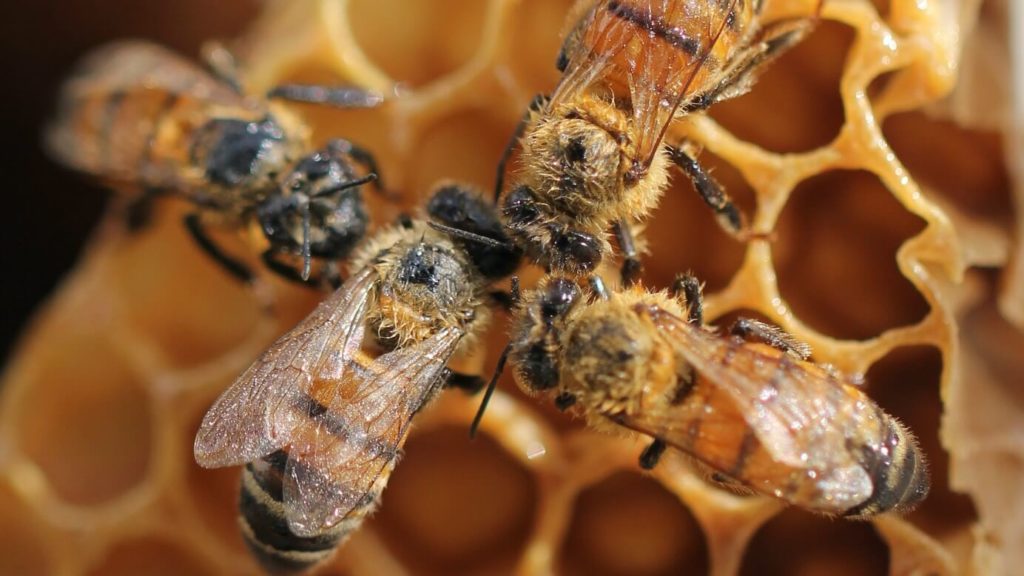Wild bees are thriving as coronavirus lockdown restrictions cause pollution levels to drop.
As many humans remain inside during the ongoing coronavirus pandemic, life for wild bees has got a little bit easier. According to scientists, air pollution makes it difficult for bees to forage. With fewer cars on the road, there are fewer fumes, meaning foraging has likely become a more straight forward and efficient process.
Car fumes can reduce the “strength and longevity of floral scents,” reports the BBC. Because of this, bees can end up flying further than they need to find food for their young.
Mark Brown—a professor of evolutionary ecology at Royal Holloway, University of London—told the BBC: “in a world with less air pollution, bees can make short and more profitable ‘shopping trips.'” This, in turn, could help the insects rear more young, he explained.
Less traffic on the roads also means that fewer bees are killed by vehicles. Overgrown road verges, many of which aren’t being maintained due to lockdown restrictions, are also useful for bees, providing a new and unexpected food source.
Some wildlife experts hope that councils will continue to allow road verges to overgrow after the lockdown.

Why Are Bees Important?
According to the Earthwatch Institute, an international conservation nonprofit, bees are the most important species in the world.
They fertilize around one-third of the food we eat and 80 percent of flowering plants. According to the BBC, each year, bees contribute around £690 million to the UK’s economy.
Despite all of this, bee populations are in decline. This is, in part, due to pollution, as well as habitat destruction and pesticide use.
As well as allowing roadside verges to overgrow, humans can help bee populations by rewilding gardens and parks. The Somerset Wildlife Trust recommends that people mow their lawns less frequently, as well as plant wildflowers.
Curridabat in Costa Rica sees the value in bees and other pollinators so much, it has even granted them citizenship. Edgar Mora, the city’s former mayor, told the Guardian: “pollinators are the consultants of the natural world, supreme reproducers, and they don’t charge for it.”


